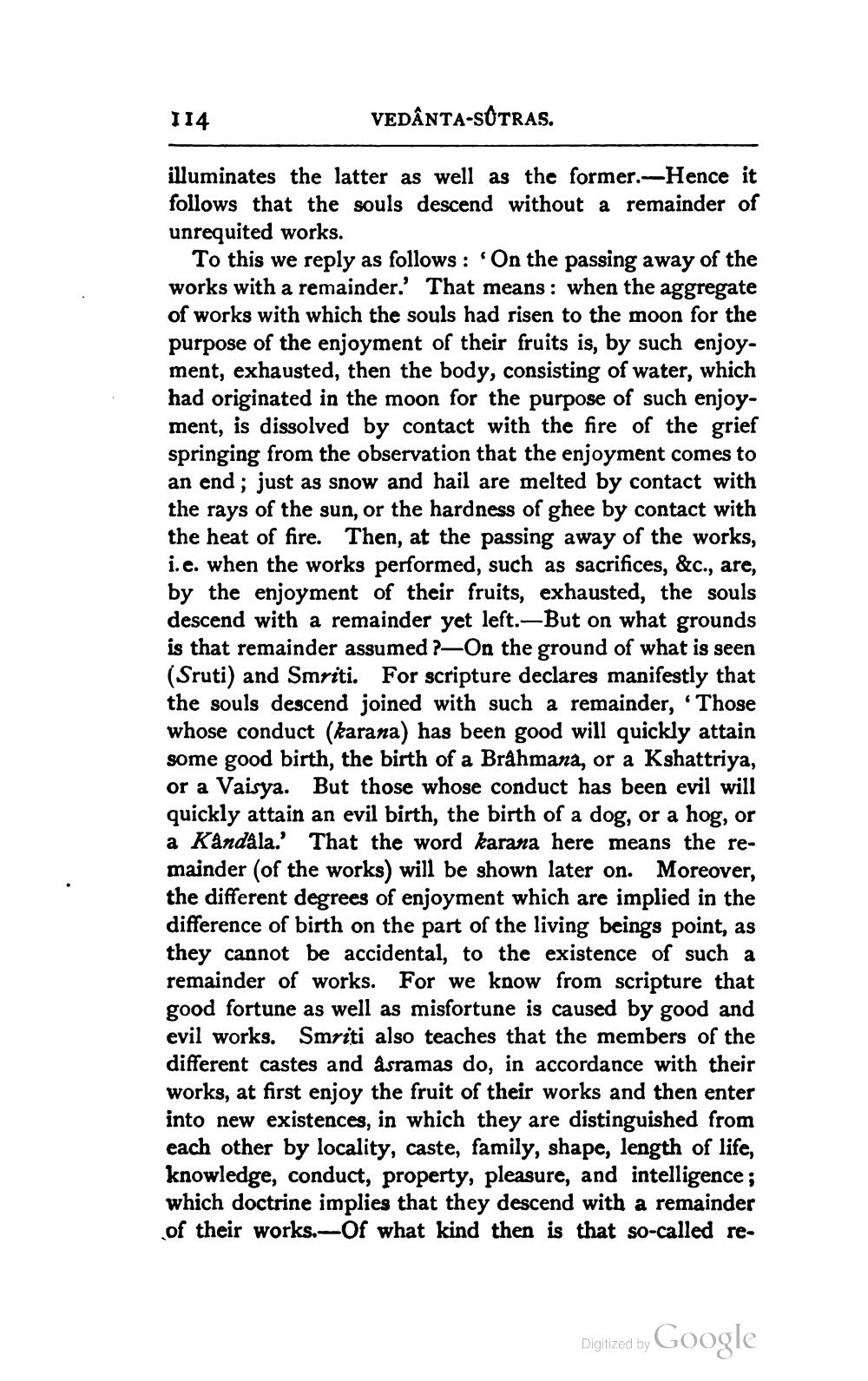________________
I14
VEDÂNTA-SOTRAS.
illuminates the latter as well as the former.--Hence it follows that the souls descend without a remainder of unrequited works.
To this we reply as follows: On the passing away of the works with a remainder.' That means: when the aggregate of works with which the souls had risen to the moon for the purpose of the enjoyment of their fruits is, by such enjoyment, exhausted, then the body, consisting of water, which had originated in the moon for the purpose of such enjoyment, is dissolved by contact with the fire of the grief springing from the observation that the enjoyment comes to an end ; just as snow and hail are melted by contact with the rays of the sun, or the hardness of ghee by contact with the heat of fire. Then, at the passing away of the works, i.e. when the works performed, such as sacrifices, &c., are, by the enjoyment of their fruits, exhausted, the souls descend with a remainder yet left.—But on what grounds is that remainder assumed ?-On the ground of what is seen (Sruti) and Smriti. For scripture declares manifestly that the souls descend joined with such a remainder, “Those whose conduct (karana) has been good will quickly attain some good birth, the birth of a Brahmana, or a Kshattriya, or a Vaisya. But those whose conduct has been evil will quickly attain an evil birth, the birth of a dog, or a hog, or a Kandàla.' That the word karana here means the remainder (of the works) will be shown later on. Moreover, the different degrees of enjoyment which are implied in the difference of birth on the part of the living beings point, as they cannot be accidental, to the existence of such a remainder of works. For we know from scripture that good fortune as well as misfortune is caused by good and evil works. Smriti also teaches that the members of the different castes and asramas do, in accordance with their works, at first enjoy the fruit of their works and then enter into new existences, in which they are distinguished from each other by locality, caste, family, shape, length of life, knowledge, conduct, property, pleasure, and intelligence; which doctrine implies that they descend with a remainder of their works. Of what kind then is that so-called re
Digitized by
Digitized by Google




